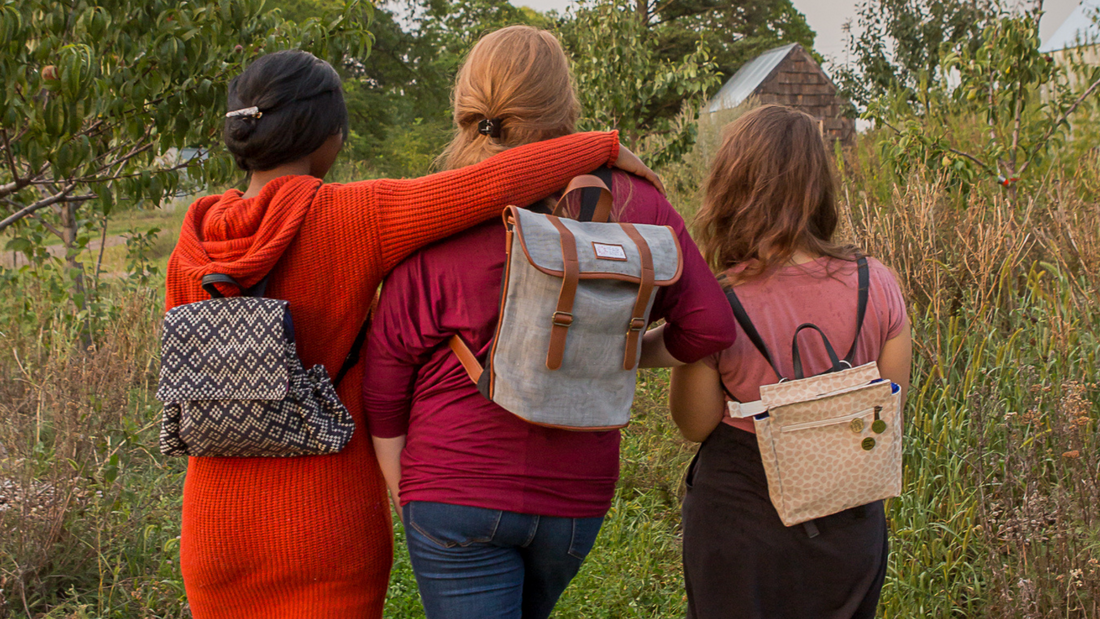If there is something we have learned this past year, it’s that just because we have “good intentions,” that doesn’t mean our actions don’t cause harm, and that we don’t have to own up to the harm that they sometimes cause.
I am going to stop here and say that this article is going to be a really honest post on my thoughts as someone who works in ethical fashion (and is a consumer as well) on why ethical fashion isn’t mainstream. This post will cover topics that are moralizing but will hopefully bring a fresh perspective. So if that’s not something you are in the mood for today, you can alwasy come back and read this later.
If you are genuinely curious as to why fashion isn’t always ethical, please keep on reading! I am so appreciative that you are here.
So really, why isn’t ethical fashion a bigger deal?! If feels like NO ONE TALKS ABOUT IT. No, seriously-- I spent 6 months in college trying to figure out how people discuss ethical consumption, and my biggest finding was that people don’t. I interviewed managers and owners of fair trade businesses, and yes, they discussed fair trade with their customers, proudly telling people the story of the women who made that beautiful ceramic pot. But upon clocking out for the day, that was it. The topic probably wouldn’t come up again until they were back at work the next morning. For the most part, people didn’t talk about ethical fashion with their friends and family. And, y’all, they had a really understandable reason for not discussing it. Talking about fast fashion can bring up a lot of guilt. Most people are aware that clothes aren’t made in safe conditions, but we still purchase from those fast fashion brands anyways. Because it can be really difficult to purchase everything in an “ethical” way (trust me I have tried).
But here is the thing, if we don’t talk about it, nothing will get better.
And the way fast fashion is made is straight-up wrong. Many of the fast fashion brands you love don’t even know where their clothes are being made. Through subcontracting, big brands have very little say in what factories their clothes are being made in. And the rules and regulations stated on their “social responsibility statement” are really hard to enforce. The race to the bottom, or the search for the cheapest production costs, leads factories to compete to have the lowest wages, and creates unsafe working conditions. Y’all, when your only choice is to work in a factory with a below-living wage, or nor have a job at all, it doesn’t really matter what kind of factory you work in. We can refer to this as “exploitative labor” at best, but if we are really honest, this is colonization and slave labor.
The thing is -- this is most frequently happening in communities that we don’t see. So we often have the luxury of simply not paying attention. Once we know better though, we have a responsibility to do better. Because we play a really big part of this narrative. Every single time we make a purchase we are telling decision-makers what kind world we want. Do we purchase a $5 dress on sale from an outlet mall just because it is super cheap, and honestly how many times will it get worn? Twice, maybe 5 times? Or do we purchase a $60 dress from a sustainable brand, that works with women who earn a thriving wage, that you will wear all-the- darn-time because you actually LOVE it and value it.
Our actions literally give money to the people and the companies that will survive. Why not spend our money on things we will cherish and give our money to people that will use it to build better systems. There are so many companies who are innovating fashion and are making sure that the people who make our clothes are not being exploited, but rather are earning a living wage and are actually being respected. Whether we realize it or not, our actions have really big consequences. And I think it is time we start talking about it.
I know this can be a really uncomfortable topic to talk about. No one wants to think this stuff when buying a pair of jeans, but it probably is supporting slave labor all around the world (because this happens in the U.S. as well).
By now you may be wondering - what is next, how do I support brands that are sustainable? How do I talk to my friends and family about this? How do I advocate for a world where all the makers are safe, valued, and respected? There is a lot to do next, and that is okay. For now, take a breath, take all in, and make a commitment to learning more (whether that be from our other blogs on this topic, or from other members of the Fair Trade Federation!).

